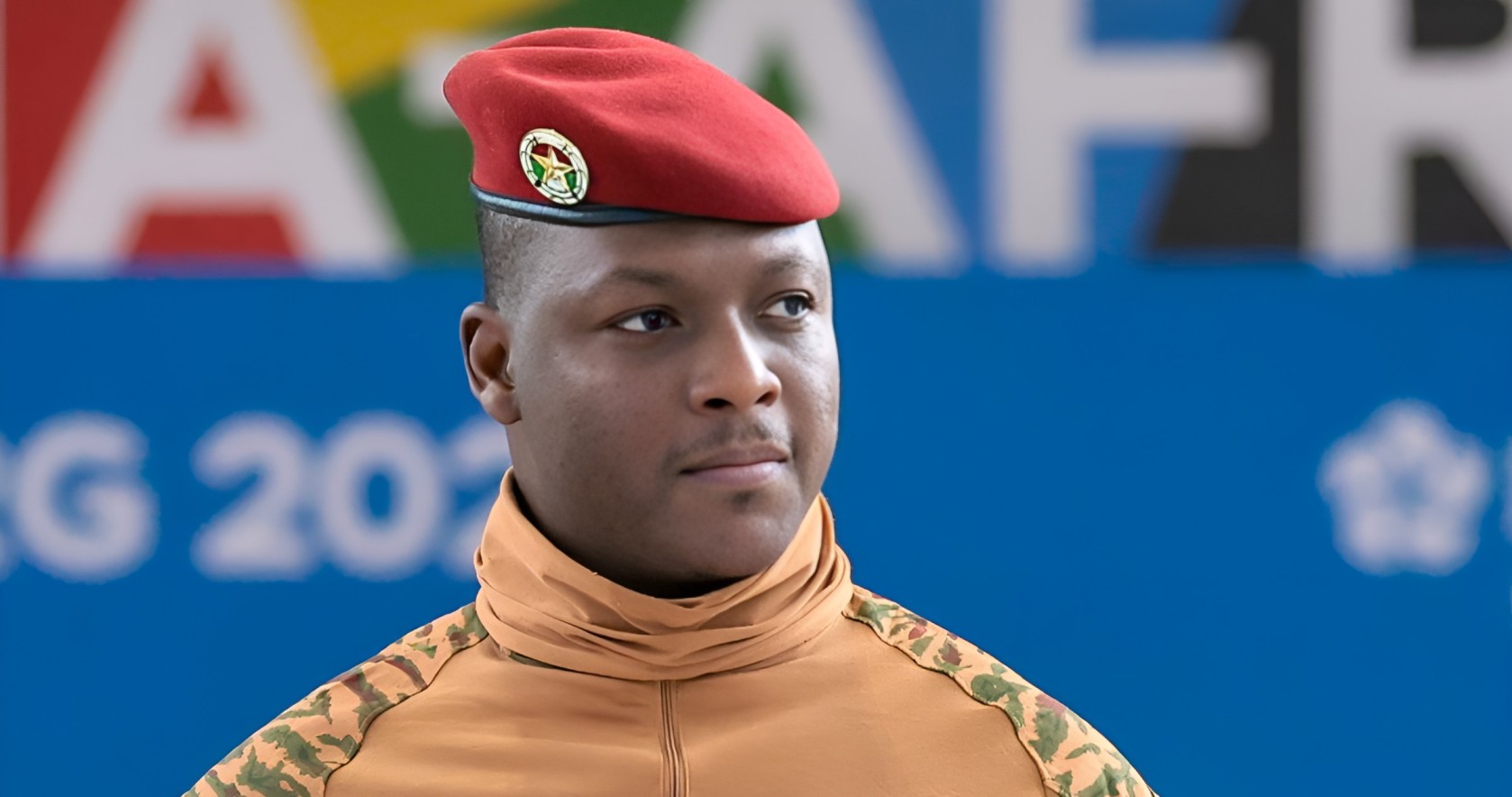Captain Ibrahim Traoré, the 37-year-old military ruler of Burkina Faso, has emerged as one of the most talked-about leaders in Africa, captivating supporters across the continent and beyond with a message of sovereignty, anti-imperialism and African pride.
In just two years, he has gone from an unknown army officer to a continental icon hailed by many as the spiritual successor of Thomas Sankara.
Traoré’s rise began after he seized power in a 2022 coup. Since then, he has made sweeping changes that reflect his strong anti-Western stance.
He cut ties with France, Burkina Faso’s former colonial power, and embraced a closer alliance with Russia. His actions and words have struck a chord with a generation of Africans frustrated by poverty, corruption and foreign influence.
Revolutionary reforms and economic shakeup
One of Traoré’s key reforms has been the creation of a state-owned mining company.
Under his rule, foreign mining firms are now required to give a 15% stake to the state and pass on skills to local workers.
The same rule has applied to Russian miner Nordgold, which recently received a new licence to invest in the country’s gold sector. Traoré’s government has also nationalised two gold mines that were previously owned by a UK-based firm and says it plans to take control of more.
Efforts are underway to build a gold refinery and create national gold reserves for the first time. These moves are part of what he calls a "revolution" to ensure Burkina Faso benefits from its natural wealth.
However, not all companies are happy. Australian mining firm Sarama Resources has launched arbitration proceedings against the country after its exploration licence was withdrawn.
Traoré’s push for economic independence has been praised by analysts like Enoch Randy Aikins, who said: "He is now arguably Africa's most popular, if not favourite, president."
That popularity is particularly high in West Africa, where support for democracy has dropped according to a recent Afrobarometer survey.
Global attention and mixed reactions
Much of Traoré’s fame has been built on the back of strong social media campaigns.
Posts promoting his pan-African messages have gone viral, including AI-generated videos showing music stars like Rihanna and Justin Bieber supposedly praising him, though they never did.
Despite such misinformation, his image as a bold, anti-imperialist leader has spread rapidly.
He drew attention at the 2023 Russia-Africa summit when he urged African leaders to "stop behaving like puppets who dance every time the imperialists pull the strings".
This moment, widely covered by Russian media, helped shape his growing reputation as a defender of African dignity.
Back home and abroad, his influence continues to grow.
"Everyone who has experienced racism, colonialism and slavery can relate to his messages," said Beverly Ochieng, a researcher at Control Risks, in an interview with BBC.
Even US rapper Meek Mill briefly posted about Traoré, calling him a man with “energy and heart” before mistakenly calling him “Burkina Faso” and later deleting the post.
However, not everyone is impressed. France’s president described him as part of a "baroque alliance between self-proclaimed pan-Africans and neo-imperialist," a thinly veiled criticism of his links to Russia and China.
Relations with the US have also soured. In April, the head of US Africa Command, Gen Michael Langley, accused Traoré of using national gold reserves for personal protection, sparking outrage among his followers.
Soon after, Burkina Faso said it had foiled a coup plot allegedly based in Ivory Coast, where Gen Langley later visited.
Though Ivory Coast denied any involvement, the timing raised tensions further. The junta organised a mass rally in the capital to denounce "imperialists" and their "lackeys".
"Because Colin Powell lied, Iraq was destroyed. Barack Obama lied, Gaddafi was killed. But this time, their lies won’t affect us," said protester and musician Ocibi Johann.
A Symbol of youth, change, and confidence
Rinaldo Depagne from the International Crisis Group explained the leader’s appeal: "He is young in a country with a young population. He knows the art of politics – how to make a nation completely traumatised by war feel there is a better future."
Burkina Faso’s median age is just 17.7 years. Traoré’s youth, military background and confident style stand in sharp contrast to some older African presidents, many of whom cling to power despite failing health.
He made a memorable entrance at Ghana’s President John Mahama’s inauguration, dressed in military fatigues with a pistol in his holster.
"There were already 21 heads of state there, but when Traoré walked in, the place lit up," said Ghanaian analyst Kwesi Aning, according the to BBC.
Traoré presents himself as a man of the people, and he has shown skill in evoking nostalgia for past African leaders like Ghana’s Kwame Nkrumah and Zambia’s Kenneth Kaunda, as well as Thomas Sankara and Jerry Rawlings.
His supporters see him as a figure reviving the spirit of independence and self-reliance.
Despite the continued Islamist insurgency in Burkina Faso and a crackdown on dissent at home, some international institutions have recognised economic improvements.
The IMF said in April that the country’s economy was expected to remain "robust" in 2025 and praised increased spending on education and health.
The World Bank noted a drop in extreme poverty and growth in agriculture and services, even as inflation rose.
As the world watches Traoré’s next move, many in Africa see him as more than just a military leader.
To them, he represents a shift away from the old order and a bold attempt to build a new Africa rooted in sovereignty and pride.

